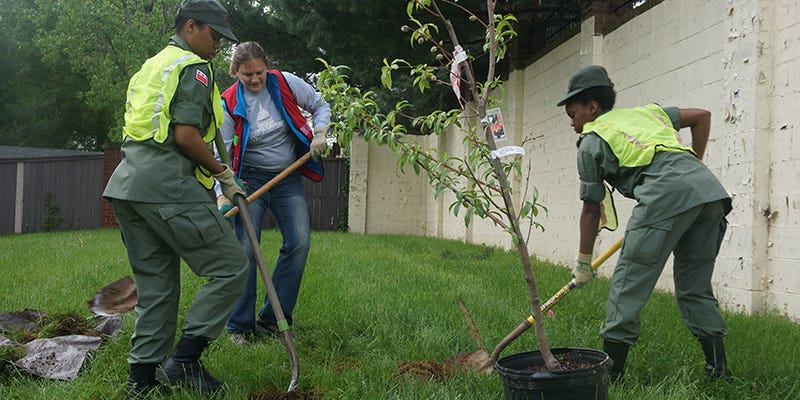08/05/2024: OM Memo Says Charging Parties Can Use Chosen Names on Charge Forms
An application of the agricultural exemption.
Ensuring Dignity and Respect in NLRB Processes to Ensure Compliance with Title VII Principles, OM 24-09, (OM Memo)
This memorandum, issued by Associate General Counsel Joan A. Sullivan, emphasizes the National Labor Relations Board's (NLRB) commitment to ensuring dignity and respect for all individuals in its processes, particularly those from the LGBTQIA+ community, in compliance with Title VII of the Civil Rights Act. It outlines specific procedures for obtaining and respecting accurate names, pronouns, and honorifics for all participants in unfair labor practice and representation cases.
Key Points and Procedures:
Correct Names: Charging parties, petitioners, and witnesses should use their correct or chosen name, regardless of whether it matches their legal identification. Regional offices will safeguard legal names from unnecessary disclosure.
Accurate Pronouns: Regional offices will strive to obtain and use the correct pronouns for all participants at all stages of the administrative process, acknowledging that misgendering is a form of harassment. Participants are not required to disclose pronouns if uncomfortable.
Respecting Honorifics: The NLRB will update its forms to include all honorifics, including Mx., and will actively seek and use accurate honorifics for all participants.
Voter Lists in Representation Cases: Voter lists should use the name voters use in the workplace, with employers able to include both workplace and legal names if there is a discrepancy.
Third-Party Witnesses: Charging parties should inform Regional personnel if a potential witness uses a different name or pronouns at work than at home, to ensure safe and appropriate communication.
Restroom Access: Individuals conducting business in NLRB offices are permitted to use restrooms corresponding to their gender identity.
What caught my eye about this memo is that it allows charging parties to file with their “correct name” which is defined as “the name that a person wishes to be referred to and not necessarily the name reflected on someone’s legal identification.” In short, charging parties can put whatever name they want on the charge form. I can’t help but think that NLRB practitioners should use the flexibility provided by this rule and use pseudonyms any time there is some concern that an employer might retaliate against a charging party. Already, I frequently file charges with myself as the charging party in order to obscure the identity of the individual I am working with. This rule seems like it could be used in the same way, including by pro se charging parties.
Casey Trees, 05-RC-331074 (Regional Election Decision)
The National Labor Relations Board's (NLRB) Decision and Direction of Election for Casey Trees, case number 05-RC-331074, primarily revolves around the determination of an appropriate bargaining unit for Casey Trees' employees, the question of whether certain employees are classified as "agricultural laborers" and therefore exempt from the National Labor Relations Act (NLRA), and the inclusion or exclusion of certain positions based on managerial or confidential status. The petitioner, the International Association of Machinists and Aerospace Workers, AFL-CIO, seeks to represent Casey Trees' Washington, D.C.-based employees.
Key holdings:
The Tree Farm employees are agricultural laborers excluded from the NLRA's coverage. These employees are involved in primary agricultural activities such as the cultivation and harvesting of trees, which aligns with the Fair Labor Standards Act (FLSA) definition of agriculture. Even if not agricultural laborers, they do not share an overwhelming community of interest with the DC employees to require their inclusion.
The DC-based Tree Operations employees are not agricultural laborers and are included in the unit. Although they handle agricultural commodities, the Board concluded that the nature of their work—planting trees in urban settings for canopy enhancement rather than for further cultivation and harvest—does not fit within the agricultural laborer exemption under the NLRA.
The disputed DC classifications (CRM Administrator, Partnerships Associate, Grants Specialist, Multimedia Communications Analyst) are not managerial or confidential employees and are included in the unit.
Key Cases Cited:
Camsco Produce, 297 NLRB 905 (1990): This case discusses the Board's approach to balancing Department of Labor guidance with NLRA policy considerations, emphasizing the importance of protecting employee rights under the Act.
DeCoster Egg Farms, 223 NLRB 884 (1976): The Board addressed the agricultural laborer exemption, clarifying the distinction between handling products grown by the employer and those sourced externally, impacting employee status under the NLRA.
American Steel Construction, Inc., 372 NLRB No. 23 (2022): This decision restored the Specialty Healthcare standard for determining appropriate bargaining units, focusing on community of interest and distinctiveness of the unit.
Holly Farms Corp. v. NLRB, 517 U.S. 392 (1996): The Supreme Court examined the definition of "agricultural laborer" under the NLRA and FLSA, providing guidance on the scope of agricultural exemptions.
NLRB v. Yeshiva University, 444 U.S. 672 (1980): The Supreme Court defined managerial employees, focusing on their role in formulating and effectuating management policies, which are criteria for exclusion from bargaining units.

